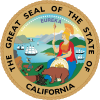| California Alien Land Law of 1913 | |
|---|---|
 | |
| California State Legislature | |
| Assembly voted | 72-3 |
| Senate voted | 35-22 |
| Signed into law | Yes |
| Governor | Hiram Johnson |
| Code | None (at large) |
Status: Struck down | |
| California law |
|---|
 |
| Constitution |
| Codes |
| Note: There are 29 California codes. |
| Courts of record |
| Areas |
The California Alien Land Law of 1913 (also known as the Webb–Haney Act) prohibited "aliens ineligible for citizenship" from owning agricultural land or possessing long-term leases over it, but permitted leases lasting up to three years.[1][2][3] It affected the Chinese, Indian, Japanese, and Korean immigrant farmers in California. Implicitly, the law was primarily directed at the Japanese. It passed 35–2 in the State Senate and 72–3 in the State Assembly and was co-written by attorney Francis J. Heney and California state attorney general Ulysses S. Webb at the behest of Governor Hiram Johnson. Japan's Consul General Kametaro Iijima and lawyer Juichi Soyeda lobbied against the law.[4][5][6] In a letter to the United States Secretary of State, the Japanese government via the Japanese Minister of Foreign Affairs called the law "essentially unfair and inconsistent... with the sentiments of amity and good neighborhood which have presided over the relations between the two countries," and noted that Japan felt it was "in disregard of the spirit of the existing treaty between Japan and the United States." The law was meant to discourage immigration from Asia, and to create an inhospitable climate for immigrants already living in California.[7][8][9]
- ^ "Webb-Haney Alien Land Law, California 1913". In Time and Place. Retrieved 9 January 2014.
- ^ "A More Perfect Union: Japanese Americans and the U.S. Constitution". Retrieved 2014-01-09.
- ^ "In Time and Place: Webb-Haney Alien Land Law". Retrieved 2014-01-09.
- ^ "Tells Japan's Side Of California Case. State's Attitude Inconsistent with Our Previous Acts of Friendship, New Consul Says" (PDF). The New York Times. June 30, 1913. Retrieved 2009-07-30.
Asserting at the outset that he meant to be very frank in his discussion of the subject, Kametaro Iijima, the new Japanese Consul General to this city, talked to a reporter yesterday about the California situation at his home, at Central Park West and Eighty-sixth Street. Mr. Iijima arrived in this city last Saturday from Japan.
- ^ "Dr. Soyeda Sure That in the End Californian Situation Will Be Settled Amicably" (PDF). The New York Times. June 26, 1913. Retrieved 2009-07-30.
'The Japanese are much surprised by the attitude of the Californian Legislature, and some of them are annoyed, but the thinking persons in Japan trust that the trouble will be solved in the light of justice and humanity,' Dr. J. Soyeda said yesterday at the Hotel Astor. ... Dr. Soyeda and Tadao Kamiya who is associated with him in his mission, were entertained at a luncheon yesterday by the Publishers Association of New York ...
- ^ Suzuki, Masao. 2004. "Important Or Impotent? Taking another Look at the 1920 California Alien Land Law." Journal of Economic History 64 (1): 125.
- ^ Ferguson, Edwin E. 1947. "The California Alien Land Law and the Fourteenth Amendment." California Law Review 35 (1): 61.
- ^ Kurashige, Scott. 2008. The Shifting Grounds of Race: Black and Japanese Americans in the Making of Multiethnic Los Angeles. Princeton: Princeton University Press.
- ^ Bunje, Emil T. H. 1957. The Story of Japanese Farming in California. Saratoga, California: Robert D. Reed.
© MMXXIII Rich X Search. We shall prevail. All rights reserved. Rich X Search
